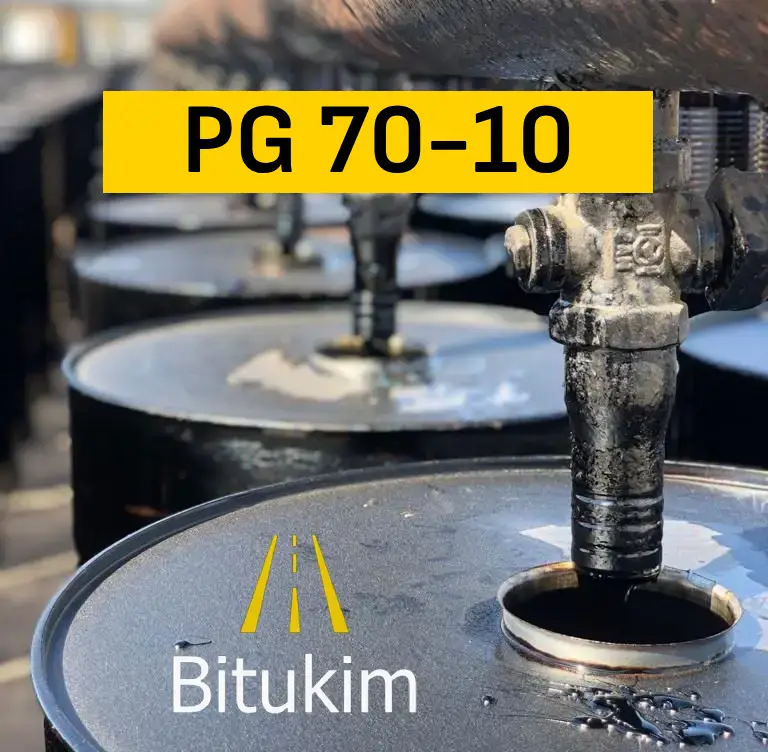
Introduction
As a trusted Supplier of polymer-modified PG 70-10, Bitukim delivers premium-grade asphalt binders designed for high-performance road construction and paving projects. We specialize in providing quality-assured materials that meet international standards, ensuring maximum durability, flexibility, and cost-efficiency for our clients in infrastructure development.
Our expertise and strategic presence in Dubai allow us to serve clients across the Middle East, Africa, and beyond with competitive pricing and reliable delivery schedules. (Contact Us).
What is Polymer Modified PG 70-10?
PG 70-10 is a Performance Grade asphalt binder formulated for demanding paving applications. The number “70” indicates the binder’s ability to withstand an average seven-day maximum pavement temperature of 70°C, while “-10” represents its flexibility and crack resistance down to -10°C.
When modified with polymers, this asphalt binder offers significantly enhanced performance characteristics compared to conventional binders. Polymer modification improves elasticity, resistance to deformation, and long-term durability — making it ideal for high-traffic highways, airport runways, urban streets, and regions with extreme temperature variations.
Advantages of Polymer Modified PG 70-10
-
Enhanced Durability – Superior resistance to cracking, rutting, and deformation under heavy loads.
-
Temperature Stability – Maintains structural integrity in both high heat and sub-zero conditions.
-
Extended Service Life – Slower aging and oxidation reduce maintenance costs over time.
-
Rutting Resistance – Excellent performance under repetitive traffic stress.
-
Versatility – Suitable for highways, airports, industrial roads, and heavy-duty pavement applications.
Applications & Uses of PG 70-10 Asphalt Binder
At Bitukim, we supply Polymer Modified PG 70-10 for a variety of high-demand paving projects, including:
-
Highways & Expressways – Long-lasting surfaces for national infrastructure.
-
Airport Runways – Stability under heavy aircraft loads.
-
Industrial & Port Roads – Designed for heavy machinery and freight transport.
-
Urban Roads & Bridges – Reducing cracking and deformation in busy city traffic.
-
Extreme Climate Projects – Reliable performance in both hot desert and cold mountain conditions.
Packaging & Delivery Options
We provide flexible packaging to meet the needs of different project sizes:
-
Bulk Transport – Shipped in hot railcars or tanker trucks to maintain optimal viscosity.
-
Drums or Pails – For smaller, controlled quantities.
-
Tote Bags / Super Sacks – Easy handling and mixing at construction sites.
Our logistics team ensures on-time delivery to your project location, no matter the scale.
Why Choose Bitukim as Your Supplier of Polymer Modified PG 70-10?
-
Proven track record in supplying premium asphalt binders for large-scale infrastructure projects.
-
Competitive pricing and flexible delivery schedules.
-
Strict quality control and compliance with international specifications.
-
Strong customer support and technical assistance.
Contact Us
Bitukim – Your Trusted Supplier of Polymer Modified PG 70-10
📍 Address: Dubai Office: No. 2305, The Burlington Tower, Business Bay, DUBAI-UAE
📞 Phone: +(971) 4 566 4998
📱 Mobile/WhatsApp: +971 (50) 940 9246
✉ E-mail: info@bitukim.com
For inquiries, bulk orders, or technical specifications, reach out today and partner with a supplier who understands your project needs. (Contact Us)


